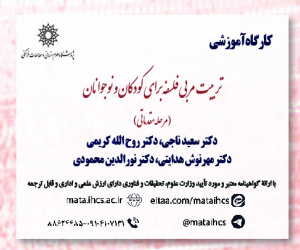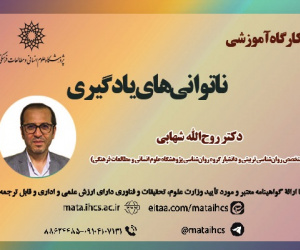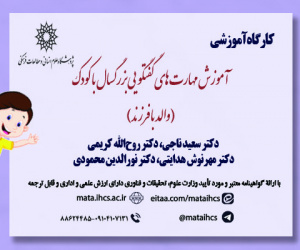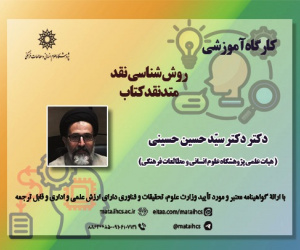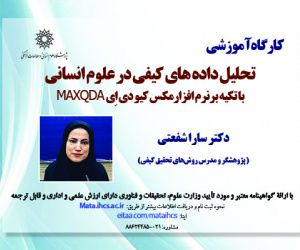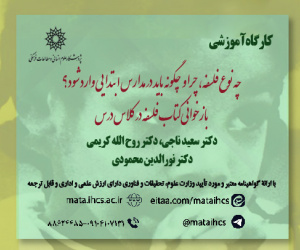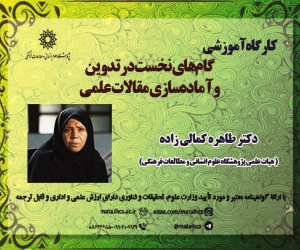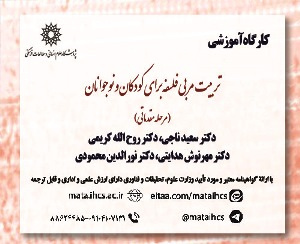مرور نظام مند حوزه های اثربخش مداخلات آموزشی-درمانی مبتنی بر تئوری انتخاب بر مدیریت رفتار فردی (مقاله علمی وزارت علوم)
درجه علمی: نشریه علمی (وزارت علوم)
آرشیو
چکیده
پژوهش حاضر با هدف شناسایی حوزه های اثربخش مداخلات آموزشی-درمانی مبتنی بر تئوری انتخاب بر مدیریت رفتار فردی در مطالعات گذشته و بر اساس مرور نظام مند انجام شد. جستجوی سوابق پژوهشی با استفاده از پایگاه های الکترونیکی متعدد داخلی، با استفاده از کلیدواژه های: تئوری انتخاب، ویلیام گلسر یا ویلیام گلاسر، واقعیت درمانی، واقعیت درمانی گروهی، مدرسه کیفی یا مدارس کیفی، مدرسه گلسری یا مدارس گلسری، مدیریت راهبرانه، فرزندپروری مسالمت آمیز، فرزندپروری مبتنی بر تئوری انتخاب، تربیت فرزند بر اساس تئوری انتخاب و روانشناسی کنترل درونی انجام شد. محتوای مقالات بعد از استخراج، با چک لیست prisma مورد ارزیابی کیفی قرارگرفته و جهت بررسی داده ها از روش تحلیل محتوا استفاده شد. پس از جستجو و ارزیابی مطالعات، تحلیل نهایی بر روی 53 پژوهش با 62 متغیر مورد بررسی انجام گرفت. بیشترین پژوهش ها به ترتیب شامل حوزه های مهارت های فردی و اجتماعی با 16پژوهش، روابط بین فردی با 15پژوهش، اختلالات هیجانی-خلقی با 15پژوهش، اختلالات مخرب رفتاری با 10 پژوهش، و حوزه تعلل ورزی با 6 پژوهش بودند. یافته ها نشان داد که حوزه های اثربخش مداخلات آموزشی-درمانی مبتنی بر تئوری انتخاب در 5 طبقه اختلالات هیجانی-خلقی، اختلالات مخرب رفتاری، تعلل ورزی، روابط بین فردی و مهارت های فردی و اجتماعی جای می گیرند. نتایج این مطالعه می تواند به عنوان یک جمع بندی به روشن شدن هر چه بیشتر حوزه های اثربخش تئوری انتخاب بر مدیریت رفتار فردی کمک کرده و یک نقشه جامع برای انجام مطالعات به صورت منسجم تر و با کیفیت تر برای پژوهشگران در تحقیقات آتی فراهم آورد. در حقیقت یافته های مطالعه حاضر می تواند یک جمع بندی از مطالعات انجام شده باشد و این طبقات را حاصل تحلیل مجدد داده ها با نگاهی دیگر تلقی کرد.Systematic Review of Effective Areas of Educational-Therapeutic Interventions Based on Choice Theory on Individual Behavior Management
IntroductionBehavioral problems can be investigated in different areas of communication, and each of the behavioral challenges in this field shows that it is necessary for psychological programs and interventions to pay attention to the optimal management of individual behavior in order to prevent and reduce existing harms. Meanwhile, choice theory is one of the practical theories for behavior management in various fields. In this theory that William Glasser based it on behavior, the general goal is to gain a correct and practical understanding of human behavior and improve the quality of life through teaching the concepts, structures and principles of this theory and its application. It introduces its various aspects in the field of individual health and well-being, family and administrative-organizational issues, as well as responsibility in performing behavior, improving interpersonal relationships and achieving a happy and satisfying life. In choice theory, behavior management means controlling, managing and issuing behavior from within the person and accepting the responsibility of doing it by the person. In general, this theory explains why and how people behave and believe that everything that comes out of us is a behavior, and all behaviors are motivated from within us and are aimed at a goal. Also, the purpose of every behavior is to satisfy one of our five basic needs: survival, love and belonging, power, freedom and fun. Glasser also believes that not only are we always behaving, but we are always trying to behave in ways that give us the greatest and most effective control over our lives. Therefore, the aim of this study was to identify the effective domains of educational-therapeutic interventions based on choice theory on the management of individual behavior in previous studies and based on a systematic review. MethodSearch for research records was done using numerous internal electronic databases, using the keywords: choice theory, William Glasser, reality therapy, group reality therapy, quality school or quality schools, glasser school or glasser schools, lead management, peaceful parenting, parenting based on choice theory, and psychology of internal control. After extraction, the content of the articles was qualitatively evaluated with the PRISMA checklist, and the content analysis method was used to review the data. After searching and evaluating the studies, the final analysis was performed on 53 studies with 62 variables. ResultsResults showed that effective domains of educational-therapeutic interventions based on choice theory fall into 5 categories: emotional-mood disorders, destructive behavioral disorders, procrastination, interpersonal relationships and individual and social skills. Most of the primary research conducted in this research in the field of behavior management from the perspective of selection theory, respectively, include the field of personal and social skills with 16 studies, the field of interpersonal relations with 15 studies, the field of emotional-mood disorders with 15 studies, and the field of destructive behavioral disorders. With 10 researches, and the field of meditation with 6 researches. DiscussionIn the general explanation of the findings, it can be said that the selection theory is regulated in such a way that it is useful and usable for therapists, counselors, teachers, trainers and other people involved in education and guidance of people. Based on the teachings of this theory, people realize that acting on new, effective and responsible choices enables them to discover and experience a life full of healthy and harmless creativity. Also, one of the basic hypotheses of the selection theory is that people always try to achieve what is called a successful identity by exerting better control over their lives; That is, they see themselves as those who have the ability to communicate love and affection, they feel that they are important to others, they experience a sense of value, they have a sense of responsibility, and they believe that satisfying their needs is their responsibility, not the duty of others. The results of this study can be used as a summary to clarify as much as possible the effective domains of choice theory on the management of individual behavior and a comprehensive map for conducting studies more coherently and with better quality for researchers to provide future research. In fact, the findings of the present study can be a summary of the studies done, and these classes were considered as the result of a re-analysis of the data with a different perspective. Therefore, the basics of choice theory can be used as educational and therapeutic interventions in the counseling centers of schools and universities, family and couple training workshops, organizational management and individual and clinical counseling in order to manage individual behavior and improve interpersonal relationships.
